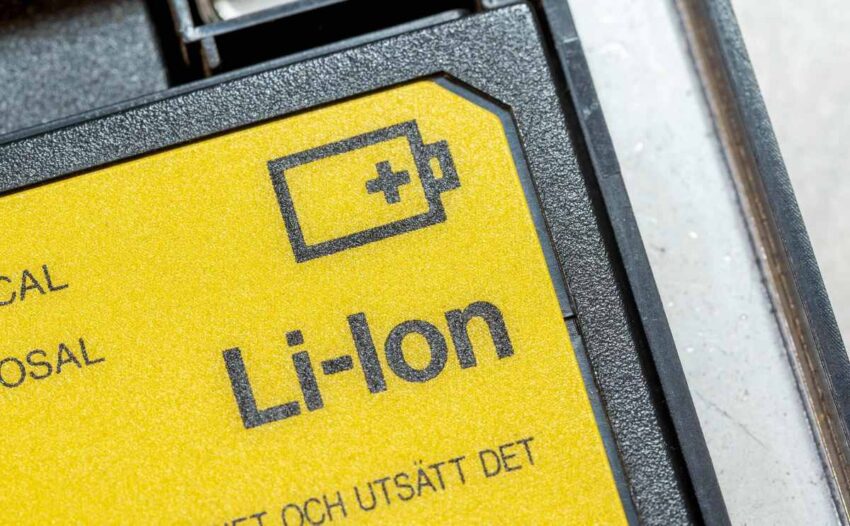
u s government takes stake in canadian The U.S. Department of Energy has made a significant move by acquiring equity stakes in Canadian lithium producer Lithium Americas and its joint venture mining project in Nevada with General Motors.
u s government takes stake in canadian
Background on Lithium Americas
Founded in 2007, Lithium Americas is a key player in the lithium mining sector, focusing on the extraction and production of lithium, a critical component in electric vehicle (EV) batteries. The company operates primarily in North America, with its flagship project located in the Lithium Triangle of South America, which includes parts of Argentina and Chile. This region is known for its high lithium reserves and is vital for meeting the growing demand for lithium-ion batteries.
In recent years, the demand for lithium has surged due to the rapid growth of the electric vehicle market and the increasing need for renewable energy storage solutions. As countries around the world push for greener technologies, lithium has become a strategic resource, prompting governments and companies to secure stable supplies.
The U.S. Government’s Strategic Move
The U.S. Department of Energy’s decision to take equity stakes in Lithium Americas comes as part of a broader strategy to bolster domestic production of critical minerals. This initiative aligns with the Biden administration’s goals to reduce reliance on foreign sources of lithium and other essential materials for EV batteries and renewable energy technologies.
Under the new agreement, the U.S. government will acquire a 5% equity stake in Lithium Americas and a 5% stake in the Nevada mining project, which is a joint venture with General Motors. This partnership is particularly noteworthy as it underscores the collaboration between the government and private sector in addressing the challenges of the energy transition.
Details of the Joint Venture
The Nevada mining project, known as the Thacker Pass project, is one of the largest lithium deposits in the United States. Located in northern Nevada, Thacker Pass is expected to produce significant quantities of lithium, which will be essential for meeting the growing demand for electric vehicle batteries. The project has faced various regulatory hurdles and environmental concerns, but it has also garnered support due to its potential to create jobs and stimulate the local economy.
General Motors, a major player in the automotive industry, has been actively investing in EV technology and infrastructure. The collaboration with Lithium Americas is part of GM’s broader strategy to secure a reliable supply chain for lithium, which is crucial for its ambitious plans to transition to an all-electric vehicle lineup by 2035. By partnering with Lithium Americas, GM aims to ensure that it has access to the necessary materials to produce its electric vehicles sustainably.
Implications for the Lithium Market
The U.S. government’s investment in Lithium Americas is expected to have several implications for the lithium market and the broader electric vehicle industry. Firstly, it signals a commitment to enhancing domestic production capabilities, which could lead to reduced dependence on foreign lithium sources, particularly from countries like China and Australia.
As the demand for electric vehicles continues to rise, securing a stable supply of lithium will be crucial for manufacturers. The U.S. government’s involvement in Lithium Americas may encourage other companies to invest in domestic lithium production, further strengthening the supply chain.
Environmental Considerations
While the investment is seen as a positive step towards securing lithium supplies, it also raises questions about environmental sustainability. Lithium mining can have significant environmental impacts, including water usage, habitat disruption, and pollution. The Thacker Pass project has faced opposition from environmental groups and local communities concerned about its potential effects on the ecosystem.
The U.S. government and Lithium Americas will need to address these concerns transparently and implement sustainable mining practices to mitigate environmental risks. This includes investing in technologies that reduce water consumption, limit emissions, and restore ecosystems post-mining.
Stakeholder Reactions
The announcement of the U.S. government’s investment has elicited a range of reactions from various stakeholders, including industry experts, environmental advocates, and local communities.
Industry Experts
Many industry experts view the government’s stake in Lithium Americas as a positive development for the U.S. lithium market. They argue that it could lead to increased investment in domestic mining projects and foster innovation in sustainable mining practices. The collaboration between the government and private sector is seen as a necessary step to ensure that the U.S. remains competitive in the global lithium market.
Environmental Advocates
Conversely, environmental advocates have expressed concerns about the potential ecological impacts of lithium mining. They emphasize the need for stringent regulations and oversight to ensure that mining operations do not harm local ecosystems or communities. Some advocates argue that the focus should be on developing alternative battery technologies that rely less on lithium and other critical minerals.
Local Communities
Local communities near the Thacker Pass project have also voiced their opinions on the government’s investment. While some residents welcome the potential for job creation and economic development, others remain apprehensive about the environmental implications of lithium mining. Community engagement and dialogue will be essential to address these concerns and ensure that local voices are heard in the decision-making process.
The Future of Lithium Production in the U.S.
The U.S. government’s equity stake in Lithium Americas marks a significant step towards establishing a more robust domestic lithium production industry. As the demand for electric vehicles and renewable energy solutions continues to grow, the need for reliable and sustainable lithium sources will become increasingly critical.
In addition to the Thacker Pass project, other lithium mining initiatives are underway in the U.S., including projects in North Carolina and Arkansas. These developments indicate a growing recognition of the importance of lithium as a strategic resource and the need for a diversified supply chain.
Government Support and Policy Framework
The Biden administration has made it clear that it intends to support the development of domestic critical mineral resources through various policy initiatives. This includes financial incentives for mining companies, research and development funding for sustainable mining technologies, and regulatory reforms aimed at streamlining the permitting process for new mining projects.
As the U.S. government continues to invest in lithium production, it will be essential to balance economic growth with environmental protection. This will require collaboration among government agencies, industry stakeholders, and local communities to develop a comprehensive strategy for sustainable lithium mining.
Conclusion
The U.S. Department of Energy’s acquisition of equity stakes in Lithium Americas and its Nevada mining project represents a pivotal moment in the country’s efforts to secure a reliable supply of lithium for electric vehicle batteries and renewable energy technologies. As the demand for lithium continues to rise, the government’s involvement in domestic production will be crucial for reducing reliance on foreign sources and fostering innovation in sustainable mining practices. However, addressing environmental concerns and engaging with local communities will be essential to ensure that the benefits of lithium mining are realized without compromising ecological integrity.
Source: Original report
Was this helpful?
Last Modified: October 1, 2025 at 6:37 am
0 views















